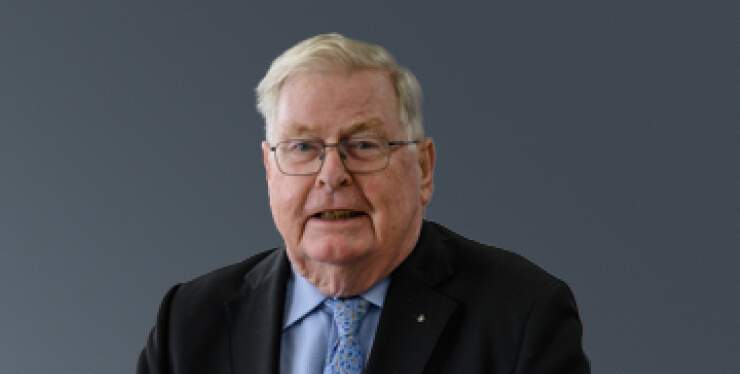

Peter Lorange
Professor Emeritus of Strategy and Honorary President of IMD
Peter Lorange is Professor Emeritus of Strategy and Honorary President of IMD.
A strategy expert whose areas of special interest include global strategic management and strategic planning and entrepreneurship for growth, Lorange has conducted extensive research on multinational management, planning processes, and internally generated growth processes. He has written or edited more than 30 books and 120 articles on these subjects.
As a key architect of the 1990 merger between the International Management Institute (IMI) and Nestlé’s Institut pour l’Etude des Méthodes de Direction de l’Entreprise (IMEDE), he was central to the development of IMD. This merger produced the International Institute for Management Development (IMD) in its current form. As President of IMD, a position he held from 1993 to 2008, Lorange played a significant role in shaping the Lausanne campus by commissioning most of its new buildings. He was also Professor of Strategy, held the Nestlé Chair for Strategy, and then held the Kristian Gerhard Jebsen Chair for International Shipping.
Among IMD’s pioneering work over the past 75 years has been the Institute’s contribution to the world of family business, where it was one of the first academic organizations to offer dedicated programs to business-owning families. To build on this global legacy, IMD established the Peter Lorange Chair in Family Business.
In addition to his academic work, Lorange was founder, sole owner, Chairman and CEO of the Lorange Network, where he led digital business knowledge transfer for business owners, entrepreneurial families, and investors. He was formerly owner and President of the Lorange Institute of Business and the owner and Chairman of S. Ugelstad Invest, a large investment company. He was also owner of S. Ugelstad’s Rederi, which was sold in 2006.
Lorange was formerly President of BI Norwegian Business School in Oslo. Before that leadership role, he was affiliated with the Wharton School of the University of Pennsylvania for more than a decade in various assignments, including serving as head of the Joseph H. Lauder Institute of Management and International Studies and The William H. Wurster Center for International Management Studies. At Wharton, he was also the William H. Wurster Professor of Multinational Management. He also taught for eight years at the MIT Sloan School of Management.
In addition to his academic work, Lorange has extensive experience in shipping, having served as director on several boards (Royal Caribbean Cruise Lines, Kvaerner and Seaspan, ISS, Keystone Solutions, Globalpraxis, Copenhagen Business School and many others).
Lorange earned his undergraduate degree from the Norwegian School of Economics, received a master’s degree in operations management from Yale University, and a doctorate in business administration from Harvard Business School. In addition, he is the recipient of six honorary doctorates.
There is much doomsday talk amid the global economic slowdown but managers should look at turbulent times for what they are: opportunities. There needs to be a fundamental change of mindset in how ...
Det er ikke den højere videnskab, men et enkelt regnestykke, som undervisere, erhvervsledere og politikere bør huske på: Et land, hvor videnoverførsel er højt udviklet, scorer højere i de samlede r...
Some might ask if tenure leads to more stability within the professorial staff. Again, IMD's experience would indicate that it doesn't make a difference. IMD has the same level of academic staffing...
As I reflect on my years as president of IMD and approach retirement in the spring of 2008, I am cognisant more than ever that success within a business school, or any organisation for that matter,...
Sustaining profitable growth is becoming a daunting task for many firms, especially in today's dynamic environment. Market opportunities may be fleeting, and strategies are quickly made obsolete th...
Nestlé helped open up the European yogurt market when a few inspired employees combined the science of nutrition with a tasty product and launched a new "phood".
To teach globally, educators must think globally, replacing long-held regional mindsets with expanded international perspectives.
Over the last years, corporate universities have come into full bloom. They take many approaches to executive development. However, they all speak loudly of a particular company's wish to strengthe...


